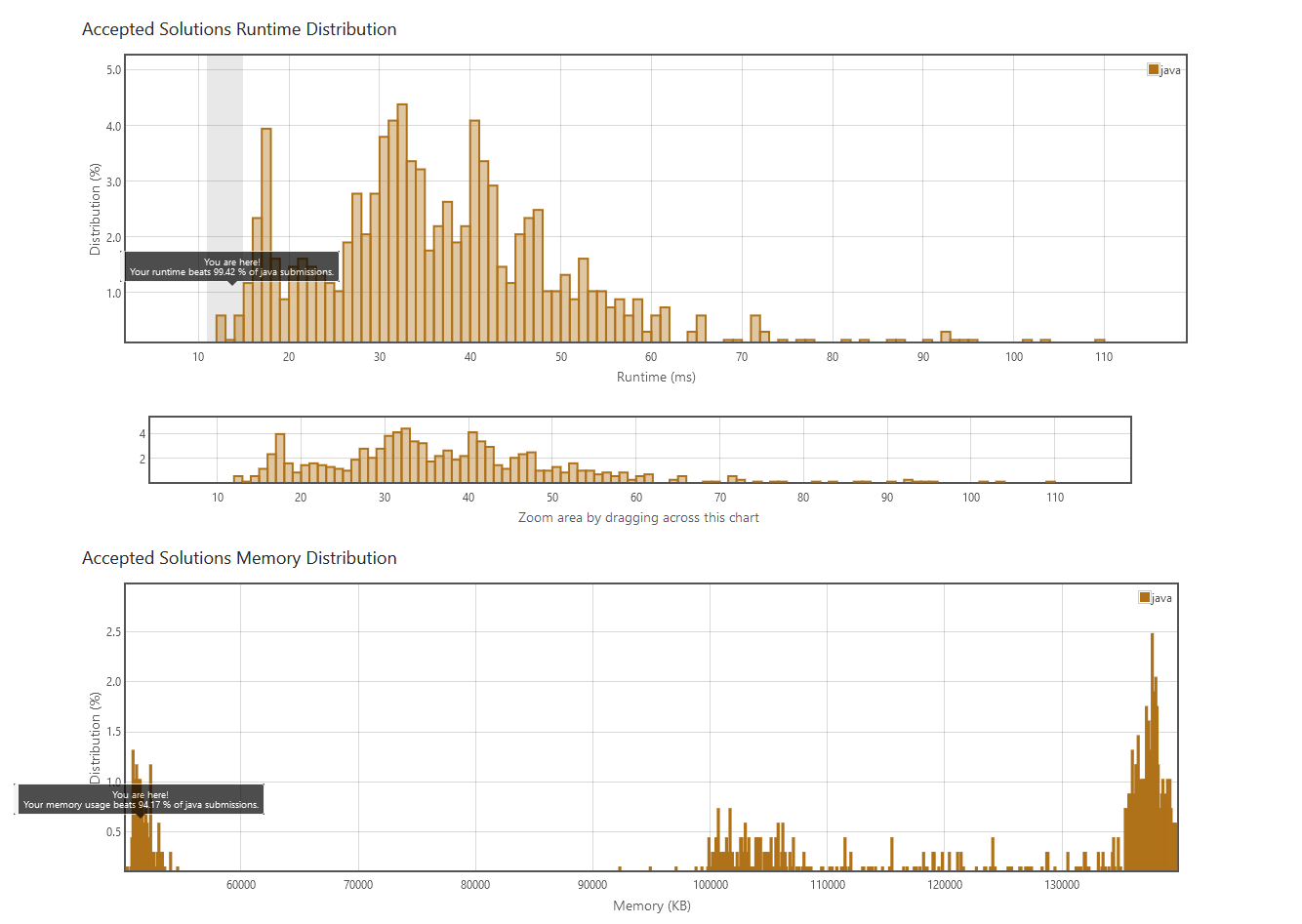

Alex Sikorski
Jul 12, 2022
Finding the Users Active Minutes (LeetCode #1817)
#java
#leetcode
#leetcode medium
The problem can be found here.
You are given the logs for users' actions on LeetCode, and an integer k. The logs are represented by a 2D integer array logs where each logs[i] = [IDi, timei] indicates that the user with IDi performed an action at the minute timei.
Multiple users can perform actions simultaneously, and a single user can perform multiple actions in the same minute.
The user active minutes (UAM) for a given user is defined as the number of unique minutes in which the user performed an action on LeetCode. A minute can only be counted once, even if multiple actions occur during it.
You are to calculate a 1-indexed array answer of size k such that, for each j (1 <= j <= k), answer[j] is the number of users whose UAM equals j.
Return the array answer as described above.
Example 1:
Input: logs = [[0,5],[1,2],[0,2],[0,5],[1,3]], k = 5
Output: [0,2,0,0,0]
Explanation:
The user with ID=0 performed actions at minutes 5, 2, and 5 again. Hence, they have a UAM of 2 (minute 5 is only counted once).
The user with ID=1 performed actions at minutes 2 and 3. Hence, they have a UAM of 2.
Since both users have a UAM of 2, answer[2] is 2, and the remaining answer[j] values are 0.
Example 2:
Input: logs = [[1,1],[2,2],[2,3]], k = 4
Output: [1,1,0,0]
Explanation:
The user with ID=1 performed a single action at minute 1. Hence, they have a UAM of 1.
The user with ID=2 performed actions at minutes 2 and 3. Hence, they have a UAM of 2.
There is one user with a UAM of 1 and one with a UAM of 2.
Hence, answer[1] = 1, answer[2] = 1, and the remaining values are 0.
Constraints:
1 <= logs.length <= 1040 <= IDi <= 1091 <= timei <= 105kis in the range[The maximumUAMfor a user, 105].
Initial Thoughts
As the input logs is a 2D array and the second dimension is a fixed size, we do not have to iterate through the second dimension. We can obtain desired values by indexing 0 or 1 where 0 is the ID and 1 is the time.
The problem wants us to find the number of unique minutes where the user performed an action. This is a clear indication that we will have to use HashMap where the key will be the ID AKA nums[i][0]. The value of the entry would have to be a HashSet since the problem is asking for unique times per user. Essentially, a HashMap allows us to track these actions per user and the HashSet prevents us from adding duplicates, which will lead to only unique times being added.
Finally, with a populated HashMap of unique times per user, we can increment the values of an int[] array of size k where the index is dictated by the size of the HashSet for each user.
Solution
class Solution {
public int[] findingUsersActiveMinutes(int[][] logs, int k) {
HashMap<Integer, HashSet<Integer>> hashMap = new HashMap<>();
// create HashMap with ID:[unique times]
for(int[] action : logs){
// iterate through actions
HashSet<Integer> set = hashMap.getOrDefault(action[0], null);
// get set respective to ID, if doesn't exit create null
if(set == null){
// if set doesnt exist (new entry) create new set
set = new HashSet<>();
set.add(action[1]);
hashMap.put(action[0], set);
// add time stamp to set
}
else set.add(action[1]);
// if set is instantiated, just add the time stamp
}
int[] answer = new int[k];
// finally iterate through the values and append (ID not needed)
for(var UAMs : hashMap.values()){
answer[UAMs.size() - 1]++;
}
return answer;
}
}Result


Alex Sikorski
Currently working as a full stack Software Engineer and curiously seeking new knowledge in free time.